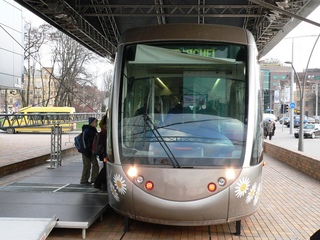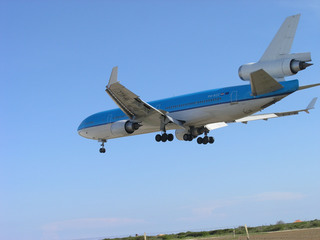EASTERN EUROPE AND KAZAKHSTAN: NEW HORIZONS OF COOPERATION
Published:
1 November 2003 y., Saturday
In 2004 ten of Eastern and Central European countries (ECE) will enter the European Union; it will be record quantity of new members for all the EU history.
Positive and evident experience of Single Europe members urges on potential members to meet a number of necessary requirements for of the Western-European investments inflow and therefore possible increase of living standards at present or in prospects.
The entering of these countries to the European Union can benefit not only them, but also traditional partners of Central and Eastern Europe such as Kazakhstan. Now available investments inflow from the EU members and recent the Brussels grants allowed to recover the some economic sectors and to increase the export level with other states, including Kazakhstan.
For example, the purchase by German “Volkswagen” rather unprofitable in the beginning of 1990s automobile factory “Skoda” in Czech Republic and some affiliated companies in Slovakia. The company has already created number of dealers in Republic of Kazakhstan. Working on prospect, it often signs leasing agreements with business partners.
The European companies investments to Polish economy allowed to develop hi-tech manufactures: computer production, video-audio techniques. Due to the Western technology and the low cost price the goods are attractive not only in the CIS, but in Europe.
In Hungary cooperation of automobile factory «Ikarus» with Swedish company "Volvo" allowed to improve bus manufacture. The trade mark is traditionally well-known in the former Soviet republics.
The European partners’ investments to Romanian economy were more helpful than for other Eastern European states. After the disintegration of the single economic market of socialist countries the state lost not only in economic, but also in political sphere.
Mainly due to the Western help Romania managed to support enterprises and keep workplaces, and that in turn it lowered social excitements and interethnic collisions. France, the active and developed EU member invested Romanian oil sphere that allowed to improve oil and gas refining and to increase hydrocarbons import volume from the Caspian sea and Siberia. Romania considers Kazakhstan as the main oil partner in the CIS except Russia. According to Romanian government the Caspian oil should be transported to Europe via Romanian sea ports in Black Sea. That was the aim of Romanian President Emil Constantinescu’s visit to Kazakhstan in the end of 1990s.
Investments to Slovenia and Bulgaria allowed to increase traditional production – the household chemical goods, utensils, pharmaceutics, goods which are popular in our country. Slovenian pharmaceutical giant – company "KRKA" opened number of joint ventures in Kazakhstan, creating workplaces for our citizens.
The Baltic States broke a record in attracting investments among the Eastern European countries. This allowed to quickly pass unpleasant, but necessary transformational processes in economic and political sphere. Finland and Germany created many joint ventures in Estonia and Latvia, thus improved competitiveness of the Baltic goods, many of which are exported mainly to the CIS countries. For example, in Latvia the Riga diesel factory delivers locomotives and cars, qualitative and inexpensive diesel stations which are attractive for the CIS countries. There are a lot of joint ventures both in Kazakhstan and the Baltic States. The activity of association «KazBalt» is very beneficial for the partners.
Moreover, in New Europe delegates from the Eastern European states will have influence in the decision-making process. It is important to pay attention to strengthening cooperation with all Eastern European countries.
Šaltinis:
KAZINFORM
Copying, publishing, announcing any information from the News.lt portal without written permission of News.lt editorial office is prohibited.
The most popular articles
 The financial and economic crisis has shown that reckless behaviour of banks and other financial institutions can have serious and costly consequences for Europe's economy and its people.
more »
The financial and economic crisis has shown that reckless behaviour of banks and other financial institutions can have serious and costly consequences for Europe's economy and its people.
more »
 Local services that create jobs and improve energy efficiency received a boost Thursday (2 September) when MEPs on the Industry, Research and Energy Committee approved plans for more investment.
more »
Local services that create jobs and improve energy efficiency received a boost Thursday (2 September) when MEPs on the Industry, Research and Energy Committee approved plans for more investment.
more »
 The European Commission approved the first financing decisions under the EUR 264 million 2010 allocation for the so-called Vulnerability FLEX mechanism to help the most vulnerable African, Caribbean and Pacific countries cope with the impact of the global financial crisis and economic downturn.
more »
The European Commission approved the first financing decisions under the EUR 264 million 2010 allocation for the so-called Vulnerability FLEX mechanism to help the most vulnerable African, Caribbean and Pacific countries cope with the impact of the global financial crisis and economic downturn.
more »
 The European Commission has today updated the list of airlines banned in the European Union to impose an operating ban on one air carrier from Ghana and to place operating restrictions on another air carrier from that country.
more »
The European Commission has today updated the list of airlines banned in the European Union to impose an operating ban on one air carrier from Ghana and to place operating restrictions on another air carrier from that country.
more »
 The European Commission today approved an application from Denmark for assistance under the European Globalisation adjustment Fund (EGF).
more »
The European Commission today approved an application from Denmark for assistance under the European Globalisation adjustment Fund (EGF).
more »
 Algirdas Šemeta, EU Commissioner for Taxation, Customs Union, Anti-Fraud and Audit, will open tomorrow an international conference at the Shanghai World Expo 2010 on building bridges to facilitate trade between China and the EU.
more »
Algirdas Šemeta, EU Commissioner for Taxation, Customs Union, Anti-Fraud and Audit, will open tomorrow an international conference at the Shanghai World Expo 2010 on building bridges to facilitate trade between China and the EU.
more »
 Moldova is set to receive an EU grant of up to €90 million to help it through the financial crisis, following a vote at Parliament's Committee on International Trade on Monday.
more »
Moldova is set to receive an EU grant of up to €90 million to help it through the financial crisis, following a vote at Parliament's Committee on International Trade on Monday.
more »
 Important notice: since May 2010 business surveys data are classified in accordance with an updated version of the Nomenclature of Economic Activities (NACE rev. 2) causing a potential break in series at this date.
more »
Important notice: since May 2010 business surveys data are classified in accordance with an updated version of the Nomenclature of Economic Activities (NACE rev. 2) causing a potential break in series at this date.
more »
 75% of Europeans think that stronger coordination of economic and financial policies among EU Member States would be effective in fighting the economic crisis, according to the Spring 2010 Eurobarometer, the bi-annual opinion poll organised by the EU.
more »
75% of Europeans think that stronger coordination of economic and financial policies among EU Member States would be effective in fighting the economic crisis, according to the Spring 2010 Eurobarometer, the bi-annual opinion poll organised by the EU.
more »
 The European Commission has extended until the end of the year the liquidity support scheme for banks in Slovenia.
more »
The European Commission has extended until the end of the year the liquidity support scheme for banks in Slovenia.
more »